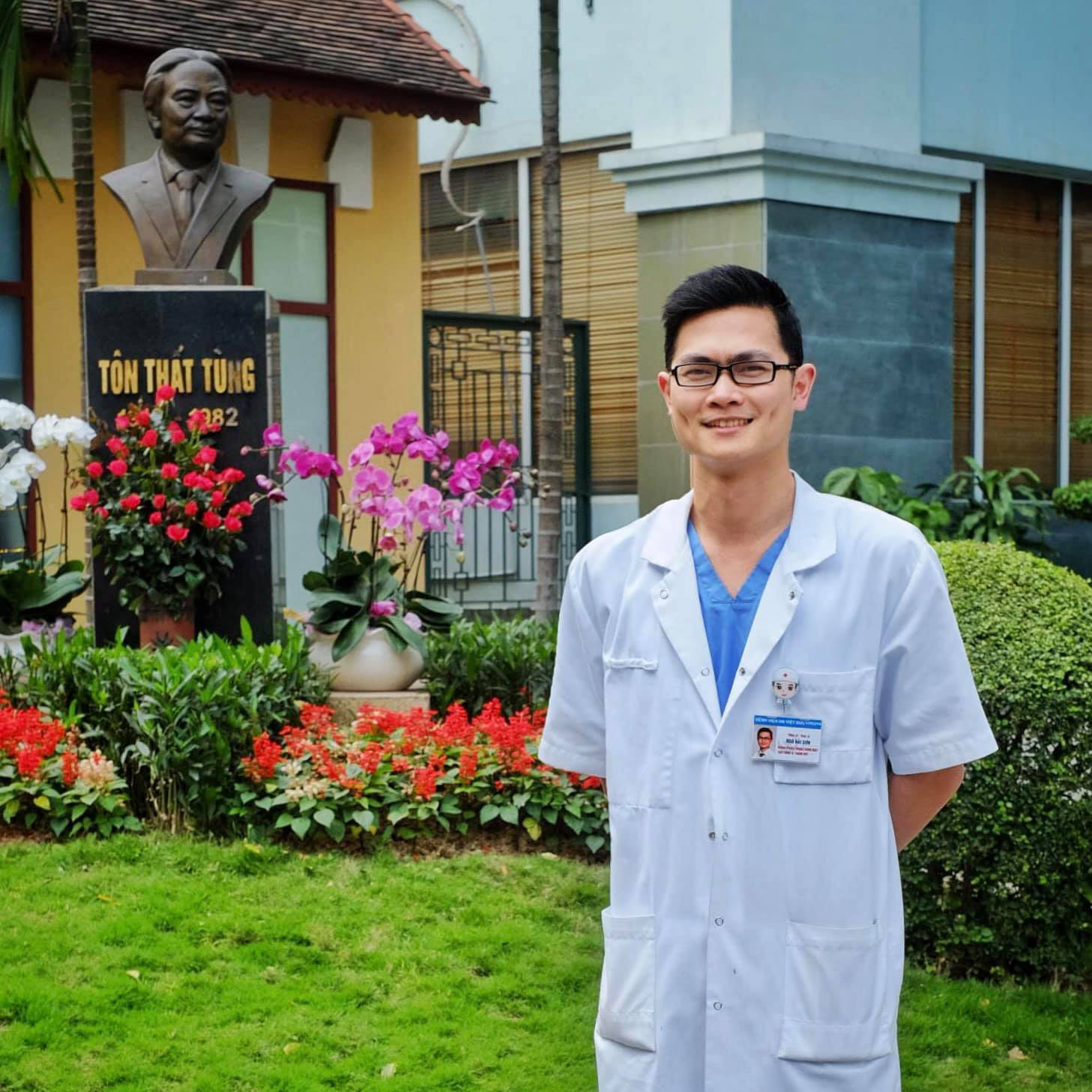
VietNamNet below presents excerpts of an article by Dr Ngo Hai Son, Master of Medicine, from the Department of Maxillofacial Surgery - Plastic Surgery - Aesthetics at Viet Duc Friendship Hospital (Hanoi). He reflects on doctors being cursed at and attacked by patients’ families during emergencies.
I have been working in an emergency unit for 15 years. Every time when the red alert rings, a race against death begins. I’ve lost count of the times I’ve seen doctors skip meals, sleep, or their children’s birthdays to save strangers.
What does the brain do in panic?
As a fourth-year medical student interning at Bach Mai Hospital (Hanoi), I was terrified when a patient’s acquaintance brandished a meter-long sword, pointing it at my face with vile language and ordered to “save him or you’ll be in trouble”.
That moment was unforgettable because I was alone in the surgical duty room, as other doctors were in the operating room.
After years of working and witnessing similar incidents, I’ve come to understand people’s psychology. When cornered by despair, people act like wounded animals, capable of doing anything. Fear is the most dangerous explosive, turning ordinary individuals into those who lose control.
Whether a university professor or a worker, when gripped by extreme panic over a loved one’s critical condition, the human brain reacts the same: it seeks someone to blame. We, in white shirts, are the closest targets.
Conducting operations while being punched: the Hippocratic paradox
We must still care for those assaulting us. Hippocrates never mentioned how to “carry out the operation while being punched” in his famous oath.
The bitter reality is that doctors have few choices. We can’t say, “I won’t save this patient because their family hit me”. If you abandon a patient, not only will your conscience not allow it, but you may also be prosecuted for the crime of "not saving a person in danger".
Senior colleagues have asked me why I have not thought of quitting the job and trying other businesses. But nothing replaces the meaning of saving a life.
According to the World Health Organization (WHO), over 75 percent of healthcare workers have experienced some form of violence at the workplace. This isn’t unique to Vietnam. It’s a global challenge. In China, a series of attacks on medical staff were reported. In the US, hospitals have bolstered security and trained staff in violence de-escalation.
Incidents like Thanh Ba’s are common. We jokingly call it the “pinnacle of the profession”, i.e., doctors have to both save lives while dodging blows.
At Viet Duc Friendship Hospital, tens of gang members once surrounded an emergency operating room, threatening doctors if their leader wasn’t saved. Order was restored only when the police intervened.
I could pursue many careers, yet despite the hardship, I still choose and love medicine and identify myself with it. Once tied to the operating room, with patients’ cries, and tense night shifts, you can’t do anything else. Doctors are the buffer between patients and death. But we’re not heroes. We are just workers who are paid to do our jobs.
I’m not a hero. I just strive to do my job well and fulfill my tasks. My Thanh Ba colleagues are the same.
People don’t attack doctors; they attack their own fear. Understanding this calms me and explains why I haven’t quit. I hope for a better working environment in the future. No matter what, medical ethics must come first. There’s no room for revenge or abandonment in medicine.
There are four preventive measures to improve the situation.
First, there should be dedicated staff for family communication. Doctors can’t perform intubation or manage anaphylactic shock while having to explain emergency procedures to families at the same time. Many incidents stem from misunderstandings or lack of information. Families need clear updates on the patient’s condition, treatments, and recovery prospects. During emergencies, a dedicated communicator can ease pressure on the medical team.
Second, there should be psychological support. Hospitals need on-call psychologists to assist families in crisis and support healthcare workers post-violence to prevent trauma.
Third, it is necessary to enhance security and legal frameworks. Hospitals need better protection, and laws must impose strict penalties on violent acts against medical staff. Many countries have specific laws to protect healthcare workers, and Vietnam should consider similar measures.
Fourth, provide training to medical staff on how to deal with crises. Recognizing stress signals and de-escalation skills can prevent violence early on.
Ngo Hai Son